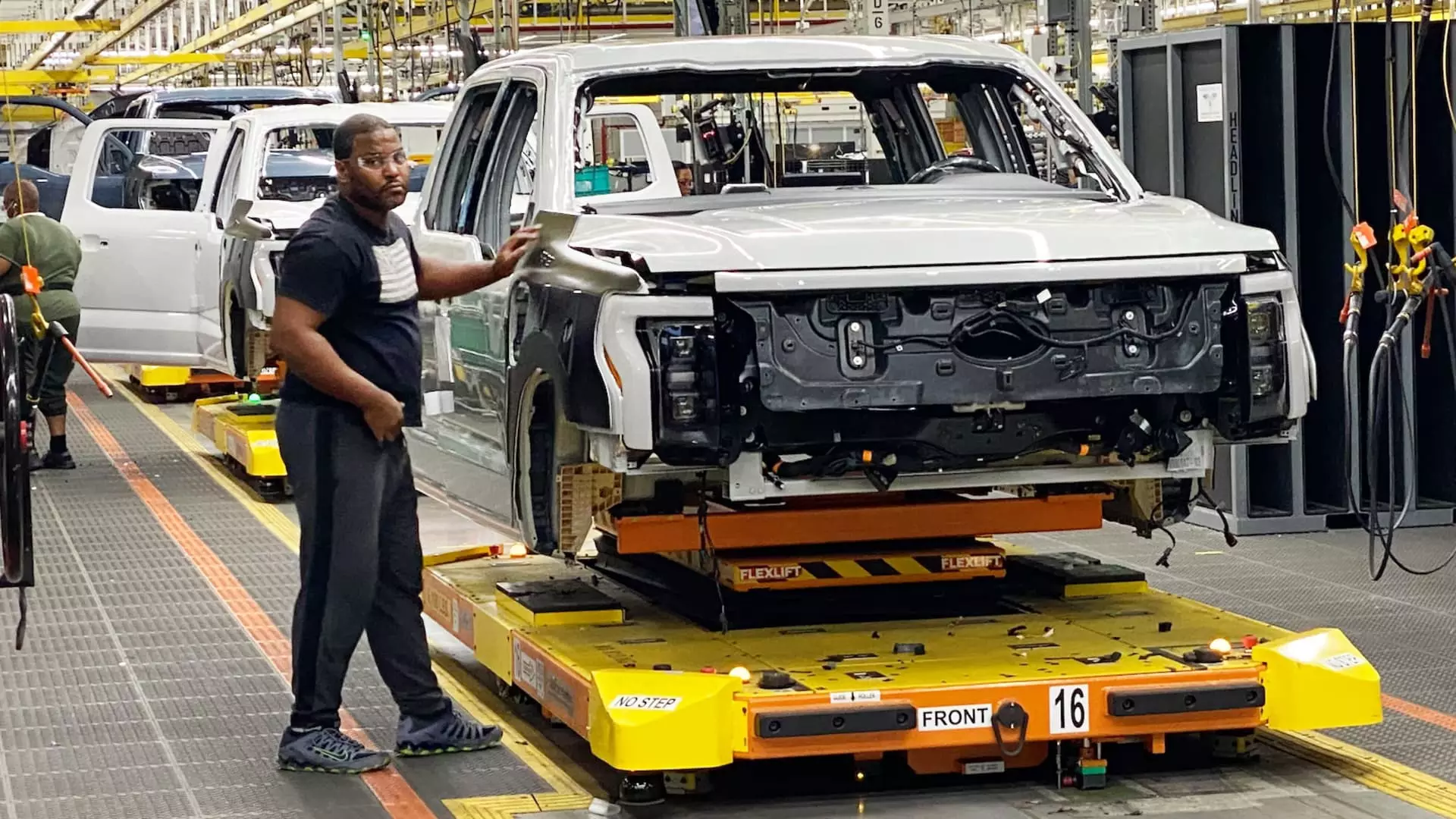In a surprising turn of events, Ford Motor has announced a significant reduction in the planned production of its highly anticipated all-electric F-150 Lightning pickup. This decision comes as a major reversal for the automaker, who had recently increased the plant capacity for the electric vehicle. The move underscores the cautious approach Ford is now taking in response to changing market demand and its commitment to align production with customer needs.
According to a source familiar with the matter, Ford now plans to produce an average volume of around 1,600 F-150 Lightnings per week at its Rouge Electric Vehicle Center in Dearborn, Michigan, starting in January. This represents a 50% decrease from the previous plan of approximately 3,200 vehicles per week. The decision to scale back production aligns with Ford’s strategy to match production with customer demand, a stance the company has recently emphasized as it cancels or postpones $12 billion in upcoming electric vehicle investments.
The reduction in production is a direct response to changing market dynamics and slower-than-expected demand for electric vehicles. Despite the increasing popularity of electric vehicles, prices and interest rates have remained high, dampening consumer enthusiasm. Automakers, including Ford, are now focused on finding ways to reduce the costs associated with producing all-electric vehicles, while reevaluating their production and product plans for the future.
Earlier this year, Ford invested six weeks to increase the capacity of the F-150 Lightning at its Michigan plant. The enhanced production capabilities were initially intended to meet the demand for 150,000 all-electric trucks. However, with the recent production changes, the company has had to adjust its expectations accordingly. Despite the challenges, sales of the F-150 Lightning have shown promise, with a monthly record of approximately 4,400 units sold in November. Year-to-date sales through November reached 20,365 trucks, reflecting a 54% increase compared to the previous year.
Ford’s decision to reduce production of the F-150 Lightning highlights the company’s commitment to adapt and align its manufacturing operations with changing market dynamics. By scaling back production and matching it with customer demand, Ford aims to optimize its resources and ensure a sustainable approach to electric vehicle production. As the industry continues to evolve, automakers like Ford must remain agile in their strategies to meet consumer preferences and navigate the challenges of the electric vehicle market.


Leave a Reply